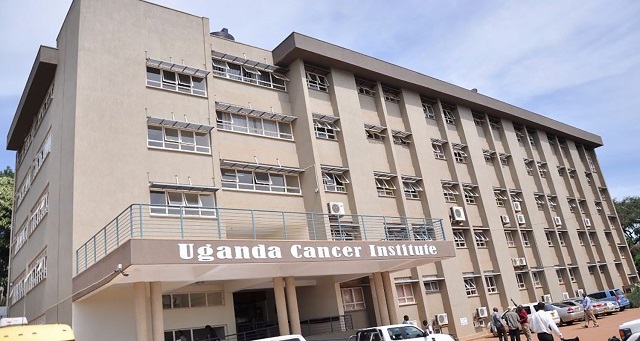
Kampala, Uganda | THE INDEPENDENT | The number of women screening for cervical cancer has reduced. This is according to doctors from the Uganda Cancer Institute (UCI).
According to officials from UCI, in the last six months, they have screened only 10 women who were referred from several health centers. Previously, they would screen more than 100 women daily.
Cervical cancer screening is one of the methods that doctors use to detect cervical cancer. It also detects the presence of precancerous phases where cells in the cervix are likely to become cancerous. When the cells are detected, they can be removed using laser treatments before they become cancerous and spread the disease.
Dr Nobel Mugisha, an oncologist at UCI and also the head of cancer prevention says cancer screening can prevent up to 70 percent of all cervical cancer. He says the decline in the number of women who are going to get screened for the disease is so bad that they are worried about the number of new cases they will get.
According to Dr Mugisha, cancer screening takes five minutes and is not painful but can be uncomfortable. During the screening, acetic acid is introduced to the uterus. The acid helps show the presence of cancerous cells by changing colour if they are present. Screening should be carried out every five years. Normally, screening is carried out for women aged between 25 and 65.
Dr Mugisha attributes the decline in cancer screening to the COVID-19 pandemic which has led to a decrease in the number of persons seeking cancer-related services in general.
Cervical cancer screening around Kampala can be carried out at Mulago National Referral Hospital, Mengo Hospital, Rubaga Hospital and Nsambya hospital.
At government facilities like UCI and Mulago, cervical cancer screening is free of charge.
However in private facilities, the cost ranges from 20,000-30,000 Shillings.
Consolata Namagadde, a nurse at Mengo Hospital and the in-charge of cervical cancer screening says they have also seen a decline in the number of women seeking screening services.
“The number has never been big but at least it was bigger than what we are seeing now. Before we could get 150 people a month, now that number has reduced to 50,” she said.
Dr Andrew Ssekitoleko, the Executive Director of Rubaga Hospital attributes the low numbers to the failure of medical practitioners to refer women for screening.
“Cervical cancer screening has always had low numbers. The only time when you see many people going for it is when you have free medical camps or when someone important starts a campaign. Otherwise, the numbers are low and you really cannot blame the women, some of them do not know,” Dr Ssekitoleko said.
Ssekitoleko says the number of women going for screening can increase if doctors routinely send them to carry out screening.
A small survey carried out in Kampala last month revealed that six out of every ten women know about cervical cancer but only half of these are ignorant about screening. When it came to those who had ever undergone screening, only one woman out of 20 that we spoke to said they had ever undergone screening. Majority of them did not know where they can be screened from.
In 2018, UCI recorded 6,413 new cervical cancer cases and 4,301 deaths. The health experts say if the current trend of women not being screened continues, the number of women succumbing to this preventable disease is likely to increase.
*****
URN
 The Independent Uganda: You get the Truth we Pay the Price
The Independent Uganda: You get the Truth we Pay the Price



